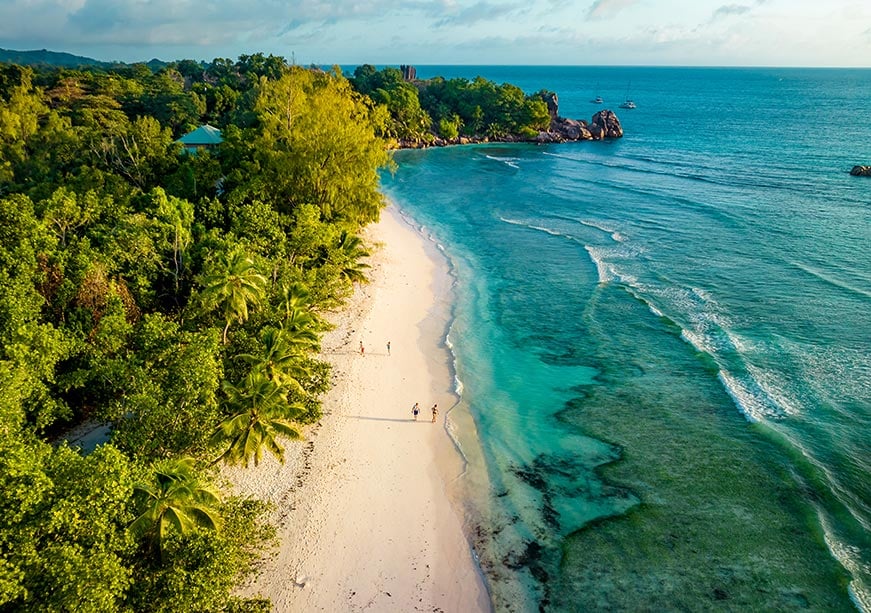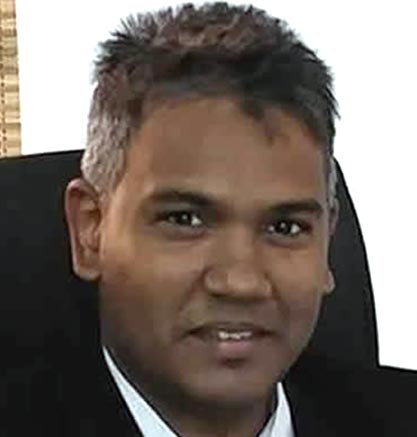-
CENTRES
Progammes & Centres
Location
Coastal communities have long sustained marine resources, but their knowledge and innovations remain overlooked in the blue economy. It is time to flip the script.

Image Source: Getty Images
This is part of the essay series: Sagarmanthan Edit 2025.
Small Island Developing States (SIDS) face the frontline of the climate crisis, yet paradoxically, they also possess some of the most valuable ocean spaces on Earth. With vast Exclusive Economic Zones (EEZs) and rich marine biodiversity, nations like Mauritius, Seychelles, and others in the Western Indian Ocean are uniquely positioned to pioneer inclusive and resilient blue economies[1]. However, unlocking this potential requires more than just investment in infrastructure; it demands a bottom-up approach that honours the custodians of the sea: coastal communities.
Fishers, artisanal seaweed farmers, coral gardeners, and coastal tourism operators have historically played a silent role in sustaining marine resources, yet their knowledge systems, innovations, and lived experiences remain underutilised in the formal blue economy discourse. It is time to flip the script.
The term “Levelling the Blue Pyramid” captures a crucial paradigm shift. For decades, policy frameworks have prioritised top-down development models, often overlooking the very people who interact daily with the ocean. Fishers, artisanal seaweed farmers, coral gardeners, and coastal tourism operators have historically played a silent role in sustaining marine resources, yet their knowledge systems, innovations, and lived experiences remain underutilised in the formal blue economy discourse. It is time to flip the script.
For too long, coastal citizens have been seen merely as stakeholders, participants whose involvement is optional or supplementary. Instead, they must be recognised as stewards of the marine realm, whose generational knowledge and practices offer deeply rooted solutions to today’s ocean challenges.
In Mauritius, community-driven coral restoration initiatives are now thriving in places like Trou-aux-Biches, La Cambuse, and Pointe-aux-Feuilles, where local NGOs, divers, and even school children are directly engaged in growing and transplanting coral fragments. These efforts not only restore damaged reefs but also foster ocean literacy, community pride, and sustainable livelihoods through eco-tourism and citizen science. Importantly, these projects often operate outside traditional bureaucratic frameworks, reflecting a model of action-oriented stewardship that is agile, inclusive, and highly adaptive.
Across the Indian Ocean, traditional fisheries management practices, from temporary closures known as “no-take zones” to seasonal fishing taboos, have helped regenerate depleted stocks. When these cultural norms are supported by modern science and policy, they can serve as hybrid governance models that blend tradition with innovation. However, such efforts require validation, visibility, and support, especially through legal frameworks and financial incentives.
Resilience is not only ecological, but also social. The blue economy must invest in building the capacity, connectivity, and confidence of coastal communities.
Capacity building must go beyond basic training. It should include entrepreneurship, financial literacy, digital tools for fisheries and aquaculture, and policy engagement. Collaboration with seaweed farmers in Mauritius has revealed that providing access to simple water quality monitoring tools, guidance on raft construction, and value addition techniques like drying and packaging can dramatically improve incomes and agency.
Digital platforms, regional exchanges, and South-South cooperation offer fertile ground for such knowledge transfer. When communities feel they are part of a larger movement, it fuels momentum and mitigates feelings of isolation and helplessness.
Connectivity refers to linking communities not only within their own country but across borders. A reef guardian in Mauritius should be able to learn from a mangrove restorer in the Philippines or a community fisheries co-op in India. Digital platforms, regional exchanges, and South-South cooperation offer fertile ground for such knowledge transfer[2]. When communities feel they are part of a larger movement, it fuels momentum and mitigates feelings of isolation and helplessness.
Confidence, the most intangible yet vital pillar, must be built by recognising and celebrating community success stories. Coastal citizens must see themselves not as victims of climate change or passive recipients of aid, but as agents of change. Highlighting their achievements on national and global platforms helps shift narratives and inspires youth to see the ocean as a source of dignity and opportunity.
Valuing coastal communities also means reimagining investment. The focus must shift from large-scale extractive projects toward nature-based solutions and inclusive blue enterprises. Microfinance schemes, blue carbon credits, cooperative business models, and blended finance mechanisms must be tailored to reach small-scale actors, including women and youth.
For example, nature-based aquaculture ventures such as seaweed farming, bivalve culture, or integrated multitrophic aquaculture (IMTA) offer low-impact, high-reward opportunities for island and coastal regions. These systems not only provide income but also deliver ecosystem services such as carbon sequestration, habitat provision, and nutrient cycling.
Tourism, too, must be reconsidered. Rather than mass tourism models that strain ecosystems and marginalise locals, community-based tourism rooted in ecological and cultural heritage can foster a more equitable distribution of benefits. Initiatives that integrate homestays, marine interpretation centres, and volunteer coral gardening are already gaining traction across the Indo-Pacific and the Caribbean. But scaling them requires policy support, market access, and brand development.
While much of the blue economy narrative is future-facing, drones, AI, and biotech, it is equally important to look to the past. Traditional navigation, artisanal boat-building, and oral histories are not just cultural artefacts; they are powerful tools for reconnecting people with the ocean.
Establishing maritime museums and interpretation centres, co-curated by communities, can become platforms for education, storytelling, and cultural preservation. These spaces can also attract tourism and foster pride among youth, bridging intergenerational gaps and inspiring future ocean leaders. They are sanctuaries of memory but also launchpads for imagination.
In Mauritius, the push to document traditional fishing practices is gaining momentum, as younger generations begin to rediscover their roots through digital storytelling, creative arts, and school programmes. These cultural interventions can work in synergy with environmental ones, reinforcing identity while strengthening ecological stewardship.
Finally, levelling the blue pyramid is not solely a domestic responsibility. International organisations, development agencies, and research institutions must ensure that their interventions are designed with, not just for, coastal communities. Participatory research, co-managed marine protected areas, and inclusive innovation models are all part of a just transition toward a sustainable ocean economy.
Partnerships that link island nations, coastal states, and indigenous marine communities across the globe can also act as accelerators. Platforms like Sagarmanthan: The Great Oceans Dialogue offer a critical opportunity to highlight these stories, share methodologies, and create actionable pathways that centre people, not just profits or platforms.
The future of our oceans will be shaped not only by diplomats and developers, but by divers, seaweed harvesters, and coastal storytellers. If we are to build a resilient, inclusive, and sustainable blue economy, we must anchor it in justice, heritage, and community empowerment. Levelling the blue pyramid is not just a policy challenge, it is a moral imperative, and an opportunity to reimagine ocean futures with coastal citizens at the helm.
Nadeem Nazurally is an Associate Professor at the University of Mauritius.
[1] Nurse, L.A., Mclean, R.F., Agard, J., Briguglio, L.P., Duvat-Magnan, V., Pelesikoti, N., Tompkins, E., Webb, A., 2014. Small islands, in: Barros, V.R., Field, C.B., Dokken, D.J., Mastrandrea, M.D., Mach, K.J., Bilir, T.E., Chatterjee, M., Ebi, K.L., Estrada, Y.O., Genova, R.C., Girma, B., Kissel, E.S., Levy, A.N., MacCracken, S., Mastrandrea, P.R., White (eds.), and L.L. (Eds.), Climate Change 2014: Impacts, Adaptation, and Vulnerability. Part B: Regional Aspects. Contribution of Working Group II to the Fifth Assessment Report of the Intergovernmental Panel on Climate Change. Cambridge University Press, pp. 1613–1654.
[2] IOC-UNESCO (2024). Ocean literacy for all.
The views expressed above belong to the author(s). ORF research and analyses now available on Telegram! Click here to access our curated content — blogs, longforms and interviews.

Nadeem Nazurally is an Associate Professor at the University of Mauritius. ...
Read More +